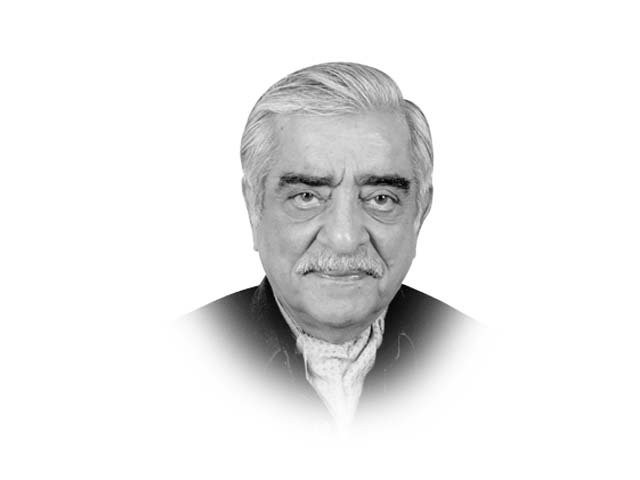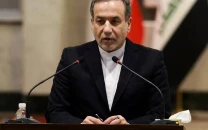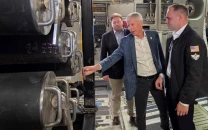Reconciliation in Afghanistan — reality or illusion?
Karzai’s unilateral efforts retard,than advance process by proceeding down a path that previously proved treacherous.

The writer was foreign secretary from 1994-97 and also served as Pakistan’s ambassador to Iran (1992-94) and the US (1990-91)
An unidentified member of the High Peace Council (HPC) confirmed that the Afghan Taliban representatives had come from Doha to Dubai to talk to Karzai’s people but maintained that no results had been achieved. The official spokesperson for the HPC, however, denied that there had been any contacts between the Afghan Taliban and the HPC, which, he emphasised, was the sole body authorised to seek reconciliation and that the HPC had no knowledge of any contacts that President Karzai may have initiated. An Afghan Taliban spokesperson told the Voice of America that the claims of talks were ‘baseless’.
Clearly, reconciliation is the best way to eliminate the threat of civil war that looms large in Afghanistan. At a recent meeting of the Chaophraya Dialogue — which has the distinction of being the only uninterrupted and perhaps, uninterruptable dialogue between retired officials and other members of civil society from India and Pakistan — there was a consensus, reflected in the joint statement that “an Afghan-owned and Afghan-led reconciliation process was key to preventing civil strife following the ISAF drawdown in 2014”. It went on to recommend “that all parties support the reconciliation process and work for its success”. But as this latest episode shows, Karzai’s unilateral efforts are retarding rather than advancing the process by proceeding down a path that has proved to be treacherous in the past. One has only to recall many comedies and tragedies associated with abortive attempts that Karzai’s people have made to start negotiations with the Afghan Taliban.
The infamous incident of the Quetta shopkeeper masquerading as an Afghan Taliban emissary — perhaps attributable to the gullibility of British and American intelligence — was one comic farce that received media attention but there have been, according to Afghan friends, other instances of Afghan government representatives being fooled into making payments and attempting negotiations with people who had no standing in Taliban councils.
Other efforts have been more tragic. In September 2011, ex-president Burhanuddin Rabbani, then head of the Karzai-created HPC, was summoned from Tehran to talk to two so-called peace negotiators, who then proceeded to blow themselves up, along with Rabbani and five others. In December 2012, Assadullah Khalid, then head of Afghan intelligence, suffered near fatal injuries when the interlocutor, presumably vouched for by Afghan intelligence, blew himself up with a bomb concealed in a body cavity.
Karzai was probably right to oppose in June last year the opening of the Qatar office of the Afghan Taliban since it carried the plaque of the ‘Islamic Emirate of Afghanistan’ and thus suggested that it was a Taliban government in exile office. Less understandable was his refusal to endorse a UN proposal for an intra-Afghan meeting in Ashgabat to build upon the contacts that had been established in Track II meetings of the Afghan parties, including representatives of the HPC and of the opposition, in Japan (June 2012) and France (December 2012). Clearly, his advisers were divided on the issue since the Afghan foreign ministry issued a statement welcoming the UN proposal for the conference in Ashgabat but was later forced to withdraw it.
Similarly, much was made of the Peace Process Roadmap to 2015 drawn up by the Afghan HPC, which envisaged close cooperation between Pakistan and Afghanistan to achieve by mid-2013, an agreement whereby, among other things, the parties would transform “the Afghan Taliban and other armed groups from militant groups to political movements”, “the inclusion of the Afghan Taliban and other armed opposition leaders in the power structure of the state to include non-elected positions at different levels” and “integration of the rank and file of the Afghan Taliban and other armed opposition groups in Afghan society”. This November 2012 document never saw any effort towards implementation since it seemed that Karzai had vetoed the effort. It seems that even though he had given the HPC the mandate for reconciliation, Karzai now treats the HPC as a worthless institution — something that one heard in private conversations in meetings with knowledgeable Afghans — and has chosen to entrust others closer to him to pursue reconciliation.
The news emerging from Dubai that Agha Jan Mohtasim, a relative and at one time, close confidante of Mullah Omar has put together a meeting of 20 formerly high-profile Afghan Taliban to negotiate with the Karzai administration and ‘other Afghan parties’ should be good news. Unfortunately, most Afghans seem to believe that since his self-imposed exile in Turkey, Mohtasim has lost whatever influence he once enjoyed with Mullah Omar. It also appears that none of the participants are from Doha where the negotiating team, blessed by Mullah Omar, still retains its presence. One can still hope, however, that this effort will materialise since this report has not been contradicted by the recognised spokesperson for the Afghan Taliban and since as far as one can recall, no one from the Afghan Taliban has ever denounced Mohtasim. The big problem may well become — even if Mohtasim has or gets Mullah Omar’s sanction — Karzai balking at involving other Afghan parties. As his opposition to the Ashgabat meeting shows, he is opposed to any negotiations, official or otherwise, in which his administration is regarded as only one of the parties in an ‘inclusive dialogue’. He wants that he and he alone should negotiate with what is called the ‘armed opposition’.
For the moment, the Mohtasim development notwithstanding, reconciliation in Afghanistan appears to be more of an illusion than a reality. A change may well come only when the Afghan elections bring a new president to power.
Published in The Express Tribune, February 16th, 2014.
Like Opinion & Editorial on Facebook, follow @ETOpEd on Twitter to receive all updates on all our daily pieces.


















COMMENTS
Comments are moderated and generally will be posted if they are on-topic and not abusive.
For more information, please see our Comments FAQ